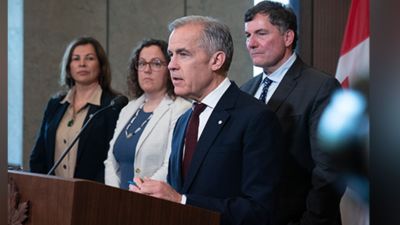Amid the ongoing tensions between India and Pakistan, one thing that’s constantly making the rounds on the internet is the possibility of a nuclear war between the two countries. Nuclear weapons are the most destructive man-made thing ever created, because of the extensive devastation they cause and their distinctive, persistent, and genetically damaging radioactive fallout that spreads uncontrollably.
The atomic bombings of the Japanese cities of Hiroshima on August 6, 1945, and Nagasaki on August 9, 1945, carried out by the United States, during World War II, were the first and only use of atomic weapons in warfare, till now. As per the estimates, the bombing had killed an estimated 140,000 people in Hiroshima, and 74,000 people in Nagasaki by the end of 1945.
What If Nuclear War Erupts?
A single nuclear weapon has the potential to destroy a city and kill most of its people. Multiple nuclear explosions over urban areas could lead to catastrophic consequences. This scenario could wipe out tens of millions of lives.
According to reports, A nuclear explosion’s fireball comes to its maximum size in just about 10 seconds, unleashing massive energy in the form of blast, heat, and radiation. The shockwave, after the explosion, travels at hundreds of kilometres per hour, and has the potential to cause destruction beyond imagination. The blast can claim many lives near ground zero and inflict injuries, including lung damage and internal bleeding, at far distances.
Collapsing structures and flying debris also harm people. Near ground zero, thermal radiation’s extreme heat vaporizes everything, which leads to severe burns and sparking massive fires that merge into devastating firestorms. The disaster can also kill people in underground shelters due to lack of oxygen or carbon monoxide poisoning.
Talking about the long-term, nuclear weapons produce ionizing radiation. This could contaminate the environment, including rivers and air, which kills or sickens those exposed, and has long-term health consequences, including cancer and genetic damage. Notably, Physicians across the globe, estimate that around 2.4 million people worldwide will eventually die from cancers due to atmospheric nuclear tests conducted between 1945 and 1980.
Even 1% use of the world’s nuclear weapons could disrupt the global climate, putting up to two billion people at risk of starvation in the long term. Numerous detonations could cause a nuclear winter, destroying the already fragile ecosystem of the Earth.
Even after one nuclear blast, it will be impossible for medical teams to work safely in radioactive areas. This would put severe pressure on emergency services. Moreover, a large-scale nuclear war could lead to a never-before-seen massive refugee crisis.
7 Devastating Consequences
- A nuclear weapon is synonymous with destruction. Even a single blast has the potential to destroy a city and kill most of its people. A full-fledged nuclear war in the world has the potential to wipe off every single creature residing on Earth.
- Nuclear weapons cannot distinguish between civilians and military targets. It is most likely that any nuclear explosion will cause much more damage to the civilian population than to military establishments.
- Nuclear weapons generate ionizing radiation, which can kill, to sicken people. They can contaminate the environment and spread diseases like cancer.
- Nuclear weapons could disrupt the global climate, putting up to billions of people at risk of starvation in the long term.
- There would be no humanitarian response available to the victims, as Physicians and first responders would be unable to work in radioactively contaminated areas.
- Nuclear weapons harm health and the environment, even if unused.
- Nuclear weapons generally need a very high amount of spending to be maintained.
Environmental And Socio-economic Impact
Nuclear weapons pose a significant threat to the environment, and their use could trigger severe climate disruptions, including a nuclear winter, global famine, and intensified global warming effects.
Moreover, the socio-economic consequences of a nuclear war would be dire, disproportionately affecting developing countries and vulnerable populations.











